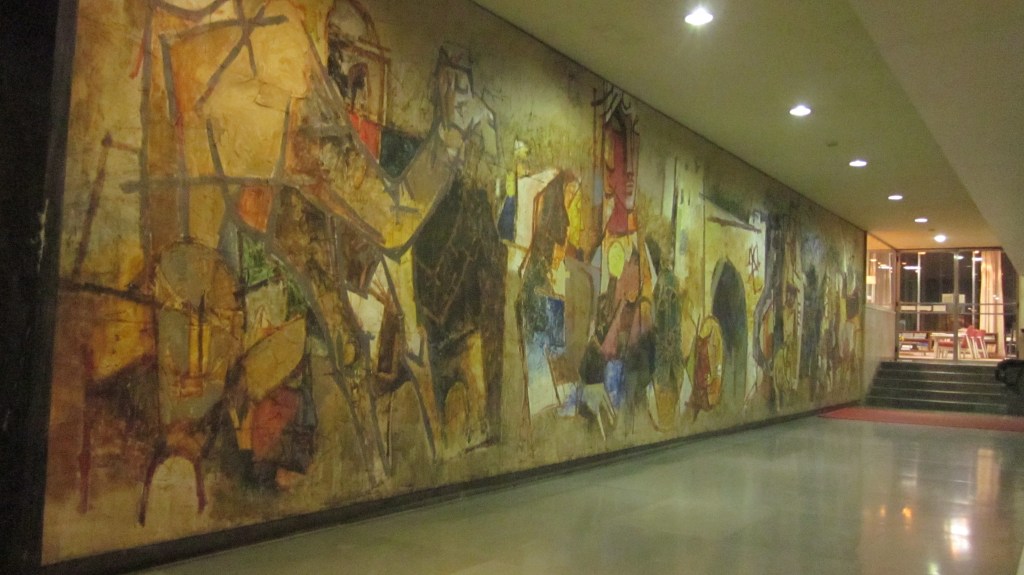
Jobs @ DTP, TIFR
Postdoctoral Positions
The Theoretical Physics Department of the Tata Institute of Fundamental Research selects a few postdoctoral Visiting Fellows every year in November-January and in April-June. These are one-year positions but can be renewed two times, i.e., up to a maximum of three years. These positions are available to anyone who has a Ph.D. degree or who has submitted a thesis to a recognized Ph.D.-granting institution for such a degree. Benefits in addition to the salary include medical support inside the campus and possibly on-campus housing.
Candidates with more than one year of postdoctoral experience and with exceptional academic records may be considered for a prestigious Jawaharlal Nehru post-doctoral fellowship which has internationally competitive salary.
Successful candidates will carry out research at the Theoretical Physics department and will have opportunities to collaborate with the members of the department, who work in topics including cosmology and astroparticle physics, condensed matter and statistical physics, electroweak particle physics, strong interaction physics including lattice QCD, string theory and mathematical physics.
Applications for the positions starting September 1, 2026 are now open. The deadline is January 20, 2026 for full considerations. Applicants need to apply via Academic Jobs Online (AJO), with covering letter, full CV, list of publications, and a statement of research interests.
The CAP faculty members are working on diverse areas of astroparticle physics and cosmology, e.g., neutrino astrophysics, particle cosmology, dark matter physics, cosmic microwave background anisotropies and spectral distortions, large scale structure, clusters of galaxies, distribution of dark matter in the Milky Way, and cosmological surveys. More information about our research can be found here, here, and here.
In addition to the department resources, postdocs selected in CAP group will have funding for research and travel through the Max Planck Partner groups.
We have diverse interests in strongly interacting and disordered many body quantum systems, such as, magnetic systems (including spin liquids), disordered superconductors, ultra cold atomic systems and topological materials. The group is also interested in studying non-equilibrium quantum many body systems using Keldysh field theoretic techniques. In statistical physics group, we work in the area of nonlinear dynamics as well as on classical and quantum equilibrium and non-equilibrium systems including theory of long-range interacting systems, synchronization, fluctuation theorems, large deviations, anomalous stochastic processes and theoretical models self-organized criticality.
The research interests of our group cover a broad range of topics including building models beyond the Standard Model, collider physics, flavor physics, jet-substructure physics, and neutrino physics. We also have considerable overlaps with the Cosmology group in topics such as supernova neutrinos, particle dark matter etc. A detailed description of the research interests of our group can be found Here.
Our research involves QCD at zero and high temperature as well as at finite chemical potential. We have interest in the phase structure of strongly interacting matter, its equation of state, transport properties, correlations and fluctuations. At zero temperature QCD we are interested to study energy spectra of hadrons, particularly heavy hadrons, multiquark and multi-hadron states. We are also interested to study decay constants and semileptonic form factors of heavy hadrons. More information about our research can be found here,
We intensively study gravity, quantum field theories and string theory. Some of our current research interests involve the study of entanglement entropy in gauge theories, connections between gravitational systems and condensed matter physics using the AdS/CFT correspondence, dynamical aspects of quantum systems with specific interest in `thermalization', reformulation of the classical dynamics of black holes in a large number of spacetime dimensions in terms of a non-gravitational theory of a dynamical membrane, the study of Chern-Simons matter theories (and their bulk duals) in three dimensions, and the classification of consistent classical modifications of Einstein gravity. Details on string theory research in our department can be found on the TIFR String theory webpage.
In addition to the department resources, postdocs selected in string theory group will also have funding through - Infosys Fellowships.